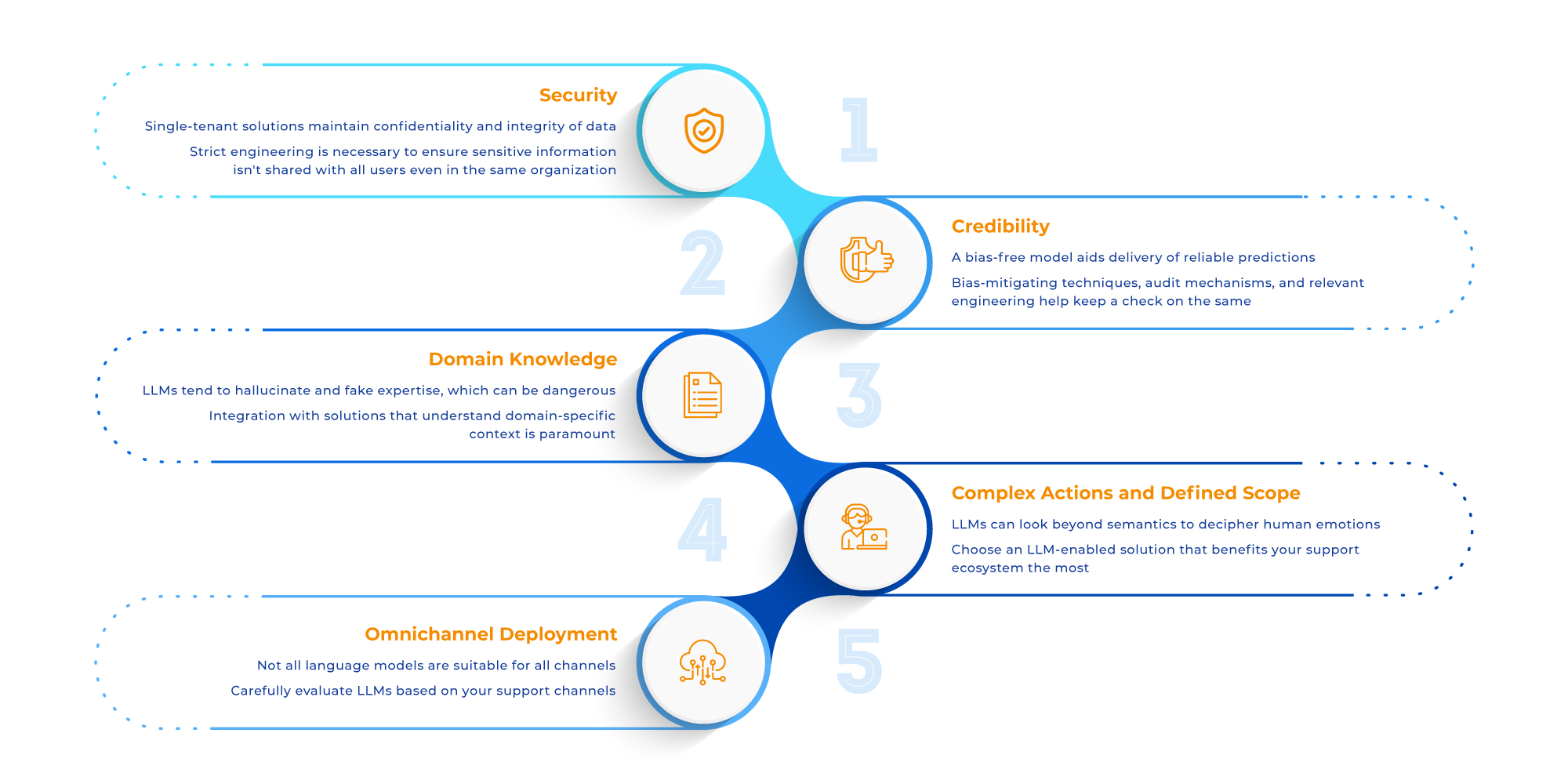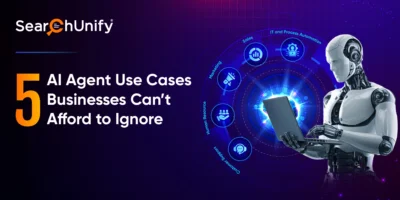
Everyone is talking about large language models (LLMs), and rightfully so. Their adaptability and scalability are creating ripples across businesses and functions with customer support being no exception.
As a support leader, it is paramount that you systematically evaluate all opportunities and any potential challenges that might come along before diving in. And given how recent the developments around LLMs and generative AI are, making an informed decision becomes all the more important.
Here are a few things you should keep in mind before making LLMs a part of your support ecosystem:

1. Security
Enterprises leverage multi-layered security to safeguard sensitive data. However, some LLM-powered solutions come with a multi-tenant architecture. That can lead to the danger of data bleed and threats arising out of vulnerabilities affecting other organizations.
It is critical the LLM doesn’t collect or share information without authorization to ensure your data’s confidentiality, integrity, and availability. Single-tenant solutions can help to a certain extent. Even then, strict engineering is necessary to ensure sensitive information isn’t shared with all users even in the same organization.
A new employee at any organization can potentially access 17 million files on their first day.
2. Credibility
Maintaining credibility and trust is crucial in customer support as the responses generated by the LLM can gravely impact your customer experience. For example, if a language model is trained on a data set that is skewed towards Zendesk, the model may generate biased responses in its favor.
That makes it crucial to curtail the bias associated with language models for more reliable predictions. Bias-mitigating techniques, audit mechanisms, and relevant engineering can help keep a check on the same.
Turns out even language models ‘think’ they’re biased. When prompted in ChatGPT, it replied, “Yes, language models can be biased. Bias can occur in language models because they are trained on data that may contain implicit biases. These biases can include Demographic, Geographic, Language, Topic, Confirmation Bias, etc.
3. Domain Knowledge
LLMs are only as good as the data they’re trained on. However, if they come across something they weren’t trained for, they tend to hallucinate and fake expertise. That makes them downright dangerous, especially in support workflows where accuracy is key.
So, if you’re contemplating adding LLMs to your support organization, an integration with a solution that understands domain-specific context is paramount.
4. Complex Actions & Defined Scope
Scope refers to the range and variety of text and language domains that the LLM needs to handle. Some models have the power to look past semantics and decipher real human emotions.
It is crucial to analyse your support function and identify areas or processes that would benefit the most from LLM-powered assistace and accordingly make a decision.
For instance, if you notice a high volume of ticket escalations, it may be beneficial to select an LLM model that is proficient in intelligent ticket triaging.
5. Omnichannel Deployment
Another factor to consider while zeroing in on an LLM model are your channels. Most models can be deployed on different channels such as web, mobile apps, chatbots, and voice assistants.
However, there are models that aren’t suitable for deployment on certain channels. Hence, it’s imperative to carefully evaluate the requirements and constraints of prospective LLM models based on the channels your support organization uses and accordingly make the right choice.
Customers who interact via multiple devices tend to spend an average of three to four times more than customers who only visit your site from a single channel.
Conclusion
The possibilities to push the envelope in the half-tapped world of language processing are limitless. However, to maximize the impact of these robust tools in your customer support teams, choosing the right LLM model becomes crucial.
If you want to revolutionize your support and self-service outcomes, we have just the perfect language model for you. Simply request a demo and get ready to add cognitive horsepower to your initiatives.













